Death is certain
December 26th, 2013
No matter how much we try to insulate ourselves from it, it cannot be avoided. Furthermore, fighting it or fighting anything for that matter, will only increase its appearance in our lives.

Instead, learning to embrace the unknown will make it our ally and help us to realize that indeed there is truly nothing to be afraid of at all. The process of releasing fear and more specifically, fear of the unknown will simultaneously bring us deeper realizations about the fundamental nature of reality and our true self, which will help us to understand how uncertainty is an integral and beautiful part of life.
Fear typically arises from (among a few other things) a lack of understanding and trust in our role as the creator of our reality. If we don’t fully believe we are responsible for what we experience, then we may feel as if anything could happen to us at any time, not perceiving that indeed it is we who control what the universe brings to us. Always preparing for and thinking about fear inducing scenarios and events will cause them to manifest in your life. Instead, we must trust our role as a co-creator of our reality. Have confidence in our vision and our abilities. Fear often signals that we may have self-worth issues as well, which is extremely common these days.
However, with the above being said, it is important to realize that fear is not to be eliminated, but rather understood for what it really is—it is to be observed rather than reacted to. This is how one disarms it. Our goal here is not suppression, but rather acceptance and understanding. From this perspective we can extract the lessons and knowledge our emotional states offer us about ourselves. (Author: Tony Griffin)
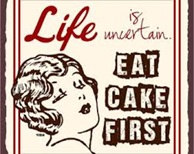
Fear of the Unknown — Curiosity
December 26th, 2013

To begin with, understand that fear of the unknown is basically an unwillingness to deal with or accept anything new or unfamiliar. Whatever the cause of our fear, one of the very first things that we will find helpful—whether we like this or not–is to confront the fear. Here are some specific steps that can be used to begin the process of confronting fear:
First, it is important to acknowledge that we have feelings of concern or fear about the thing that we must do. It does no good to turn from these feelings or to try and pretend they don’t exist. If we do try to submerge them without acknowledging them, they will only surface later and be much stronger. It serves us to realize that the feelings are there for a reason. We are about to enter an area in which we may need to exercise awareness and caution as we proceed. Notice I said, “…as we proceed.” Fear is not emotion that tells us to stop. It is far from that. Fear is an emotion that simply tells us to be very careful as we go forward. It tells that we are stepping out of what we know and are comfortable with. Stepping out of our comfort zone is the only way to truly learn and grow.
The next step to dealing with fear is to be able to feel it and do what needs to be done regardless. Everyone feels fear at some point or another or for one reason or another. It is the successful person who feels the fear and goes forward anyway. We can feel the fear of the unknown and transmute it into a positive energy to sustain to the other side of that darkness and by doing so, we become stronger in our own right. There is much to be gained and little to be lost by going forward despite our fear. However, we stand to lose so much by letting fear stop us before we get started. Moving forward in the face of our fear brings us to the next step in learning how to deal with fear…
Trust. Trust that you were wise enough to get help from your chosen teacher or guide. Trust that you are strong enough to make it through the obstacles you are confronting in life. Trust that you are smart enough to be patient when things don’t appear to happen fast enough.
Fear of the unknown l comes to us all. That is the nature of being alive Fear can be daunting, and seem insurmountable, and all encompassing, making us want to turn back. When faced with this fear, that is the time to proceed with heightened awareness, extended caution, and careful attention to process. Acknowledge the emotion of fear, and trust that a higher purpose is at work on your behalf. You will come to realize that fear—like any other emotion—does not control us unless we allow it to. In fact, we can use the fear to make us better, stronger, and able to face the next challenge as it arises. (Author of this article is unknown)
You Learn
November 21st, 2013
After a While…

You learn the subtle difference
Between holding a hand and chaining a soul,
You learn that love doesn’t mean leaning
And company doesn’t mean security.
And you begin to learn that kisses aren’t contracts
And presents aren’t promises.
And you begin to accept your defeats
With your head up and your eyes open
With the grace of a woman not the grief of a child.
And you learn to build all your roads on today
Because tomorrow’s grounds is too uncertain for plans
And futures have a way of falling down in mid-flight.
After a while you learn
That even sunshine burns if you get too much.
So you plant your garden and decorate your own soul,
Instead of waiting for someone to bring you flowers.
And you learn that you really can endure…
That you really are strong…
And you really do have worth.
With every day and every good-bye and every hello
You learn…and learn…and learn
(Veronica Shoffstall)
Which questions are more important to you?
November 13th, 2013

What kind of fancy car do you drive?
Or…
How many times have you taken an individual to an appointment who didn’t have transportation?
What is the square footage of your house?
Or…
How many people have you welcomed into your home?
How many fancy clothes you had in your closet?
Or…
How many of those clothes have you given away to those who didn’t have any?
What social class are you in?
Or…
What kindness have you displayed?
How many material possessions do you have?
Or…
Do these material possessions dictate your life?
What is your highest salary?
Or…
Have you trampled over any people to obtain that salary.

How much overtime do you work?
Or…
Do you work overtime for your family? Read more »
Four Steps to Success
November 13th, 2013
When confronted with a difficult problem take a step back—literally…
It’s what a study conducted at Radboud University Nijmegen in the Netherlands suggests. Thirty-eight volunteers took a test that presented words written in different colors. 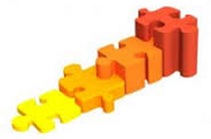 The goal was to identify the colors, not the words—a task that was especially tricky when a word related to a color, such as “blue,” appeared in a different color, such as red.
The goal was to identify the colors, not the words—a task that was especially tricky when a word related to a color, such as “blue,” appeared in a different color, such as red.
As the volunteers stood by computers for the test, they were told to take four steps away in various directions. Remarkably, their performance on the test was significantly faster after they took the steps backward, compared with forward or sideways, says psychologist Severine Koch, who headed the study.
She explains that because backing away “is usually performed in dangerous or problematic situations,” doing so apparently tends to prompt the brain to concentrate in order to meet a challenge. This experiment corroborates a study that the researches published in 2008, which found that extending one’s arm —as if warding something off-enhanced cognition compared with flexing the arm in a beckoning position.
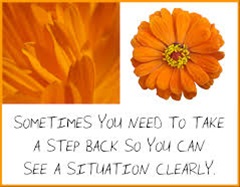
Forgiveness
November 13th, 2013
Forgiveness…is a choice, a decision. It is not earned nor is it deserved.
Forgiveness…is not condoning/excusing/forgetting/justifying/calming Down
Forgiveness…is accepting what happened/ceasing to be angry/being neutral/making yourself feel good. It is the gift you first give to yourself so you can
Quiet your angry feelings and
Change destructive thoughts.

YOUR SUCCESS IN RELATIONSHIPS AND IN LIFE IS GOING TO BE LIMITED OR ENHANCED BY HOW WELL YOU EXERCISE THESE TWO SKILLS:
- YOUR ABILITY TO CONFRONT AND RESOLVE NEGATIVE THINGS QUICKLY, DIRECTLY, LOVINGLY, THOROUGHLY AND EFFECTIVELY
- YOUR ABILITY TO LET GO AND LEAVE BEHIND THE THINGS THAT ARE NOT RESOLVABLE.
Four States of Forgiveness
November 13th, 2013
1. TO FOREGO—To leave alone; detach; take a vacation from it
2. TO FOREBEAR—To abstain from punishing; to be generous
3. TO FORGET—To refuse to dwell; to refuse to recollect; to lay to rest the emotion surrounding the memory
4. TO FORGIVE—To abandon the debt. A conscious decision to cease to harbor the resentment; to forgive the debt and give up the resolve to retaliate
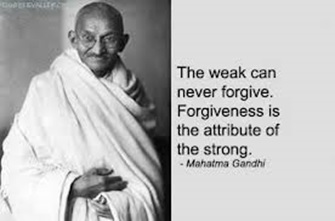
Healthy Boundaries
November 12th, 2013
Characteristics of Healthy Boundaries, by Charles Whitfield, MD
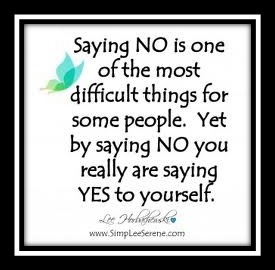
- Presence—to have boundary health, and to sense the usefulness or non-usefulness of a boundary, a boundary has to be present in my awareness to some degree. IF it is not present in my awareness, then I may not be able to set it or, if I choose, to let it go.
- Appropriateness—based on my inner life. This begins to delineate some useful reasons why I may need the boundary. I set the boundary or let it go based on what I am experiencing right now in my inner life. My inner life includes my beliefs, thoughts, feelings, decisions, choices, wants, needs, intuitions and more. So, knowing what is coming up for me in my life is crucial in my setting healthy boundaries and having healthy relationships.
- Protective—the boundary is useful to help protect the well-being and integrity of my child within.
- Clarity—I am clear about the boundary with myself and with others with whom I am setting the boundary or limit.
- Firmness—to get what I want or need, how firm do I want my boundary or limit to be? I am in charge of how firm I want them to be.
- Maintenance—do I need to maintain or hold firm on a specific boundary or limit for a period of time to get what I need or want? OR do I need to relax the boundary or limit to get what I want or need?
- Flexibility—to get what I want or need, how flexible do I want my boundary or limit to be? To have healthy boundaries, I need to also be flexible—when appropriate for my healthy, individual human needs and wants. To have healthy relationships, I may need to let go of my boundaries and limits when appropriate.
- Receptive—would it be useful or enjoyable for me to loosen the boundary a bit and let another person, place, thing, behavior or experience it?
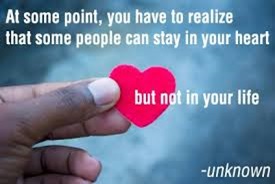
Healthy Personal Boundaries—What They Are and Why They Matter
November 12th, 2013
Learning to set healthy personal boundaries is necessary for maintaining a positive self-concept, or self-image. It is our way of communicating to others that we have self-respect, self-worth, and will not allow others to define us. Personal boundaries are the physical, emotional and mental limits we establish to protect ourselves from being manipulated, used, or violated by others. 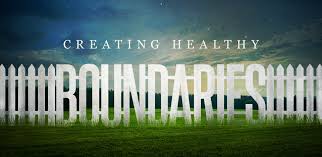 They allow us to separate who we are, and what we think and feel, from the thoughts and feelings of others. Their presence helps us express ourselves as the unique individuals we are, while we acknowledge the same in others.
They allow us to separate who we are, and what we think and feel, from the thoughts and feelings of others. Their presence helps us express ourselves as the unique individuals we are, while we acknowledge the same in others.
Boundaries are tools for building cooperation in relationship. Boundaries do not depend on fear or power. They are for letting others know what you want. Know that you have a right to personal boundaries. Their presence in your life gives you
- An improved sense of self-confidence and self-concept
- A deepened sense of your own emotional reality
- A better ability to communicate with others
- More fulfilling relationships
- A greater sense of stability and control over you own life Read more »
Boundaries
November 12th, 2013
We hear the phrase “set your boundaries” quite often and I’m never really sure what someone means by that. Perhaps it’s something like, “This is what I will do and this is what I won’t do.”
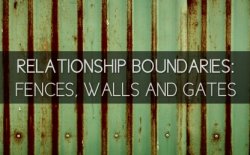 And what if we don’t “set our boundaries?” What’s so bad that could happen? Plenty, though at first pretty subtle. No, I take that back. It’s not subtle but by our denial and minimization (two handy dandy feats of our mind) we can push any consequence to the nether regions and go about our merry seemingly not bothered at all. Then, somewhere in the future, POW, we explode, we’re angry, we’re resentful, we’re depressed, we’re jealous. What the heck? Where did that come from? It was there all along but we snubbed and ignored these inevitable experiences that come from not honoring our boundaries.
And what if we don’t “set our boundaries?” What’s so bad that could happen? Plenty, though at first pretty subtle. No, I take that back. It’s not subtle but by our denial and minimization (two handy dandy feats of our mind) we can push any consequence to the nether regions and go about our merry seemingly not bothered at all. Then, somewhere in the future, POW, we explode, we’re angry, we’re resentful, we’re depressed, we’re jealous. What the heck? Where did that come from? It was there all along but we snubbed and ignored these inevitable experiences that come from not honoring our boundaries.
Any way we cannot be honest and get away with it and live a great life filled with vitality and zest and daringness and health? Nope. Why not? Cuz that just isn’t life’s design. Kind of like asking, “How come if I am on the ice rink with tennis shoes I keep slipping?” Or, “How come if I am wearing hockey skates on a basketball court I keep losing the game?” Read more »

